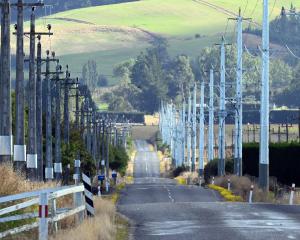What a difference a good neighbour makes, writes Gina Barreca.
Whispers from our neighbours' garden used to climb into our yard along with their ivy.
My mother, putting her fingers to her lips in the universal signal for silence, would cuddle with me as we sat perfectly still and listened to the neighbour lady gossip with her sister, who lived a few blocks away, or with one of her friends who'd show up for cake and coffee.
My mother would've been happy for an invitation into those conversations. She would have liked to consider the older woman a friend and confidante. But our neighbour didn't find us to her taste: she considered my mother, who was shy, circumspect and nervous about her accent, unfriendly. We found out that much by listening in.
From experiences like that one, I learned from an early age to be wary of neighbours - and, like my mom, to yearn for welcoming ones.
Because the relationship relies on a complex mix of fate and free will, your neighbours can fall somewhere between family and friends: you didn't quite personally choose to have a bond with them - but you do. Sharing space - whether it's a particleboard wall so thin you can hear when your neighbour coughs, a backyard fence, or the river defining your thousand acres from your neighbour's contiguous property - is a bond, just as sharing a parent is a bond. You might decide to ignore it, but it's still there.
After all, something brought you together. Whether choosing to settle in briefly or settle down long-term, it is based on factors such as availability, cost, convenience and amenities.
I once lived next to loathsome people. I didn't know if they were running a circus, a brothel, a rodeo or all three out of their one-bedroom apartment, but they were doing something repugnant.
What was worse, they did it loud and all the time.
Whatever you think I'm complaining about, it wasn't that. It wasn't just loud and odd sex or seriously weird visitors or screeching guitars in the middle of the night. Those activities they saved for major religious holidays. Whatever they did the rest of the time involved breaking glass, the smell of flame-retardant materials coming dangerously close to their ignition points and expletive-heavy yelling between adults.
Naturally the cops came all the time because the whole building reported these incidents. I wasn't their only neighbour.
The off-site landlords didn't spend too much time handling complaints from low-paying tenants. The police did all they could, but apart from checking on safety and issuing warnings, there wasn't much the officers could do.
As the months went by, the bad neighbours were having a curious effect: they were bringing the good neighbours together. It wasn't healthy, because we were all moaning and griping and gnashing our teeth, but we were doing it collectively over cheap wine and snacks at various people's tiny apartments, ones we'd never have seen otherwise. I felt guilty, as did others, because the glass-shattering tenants must have had problems, but a newfound sense of camaraderie, as well as plain old fear, eclipsed my Good Samaritan impulses.
Then, one day, the bad neighbours moved out with more noise, yelling and people who helped them drag boxes crammed with stuff down the long hallway.
It rented within two days. The new neighbour was a graduate student who would have made a monk seem wild. The rest of us went back to saying ''hi'' at the mailboxes but stopped the informal gatherings. It was as if the drama had ended and we'd filed out of the theatre.
I didn't miss the bad neighbours, but I missed being a good one.
My neighbours now? They are perfect. We look after each other. There's good talk, no yelling, much laughter and, as far as I know, no whispering. My mom would have loved it here.
-Gina Barreca is an author and professor of English literature at University of Connecticut.











